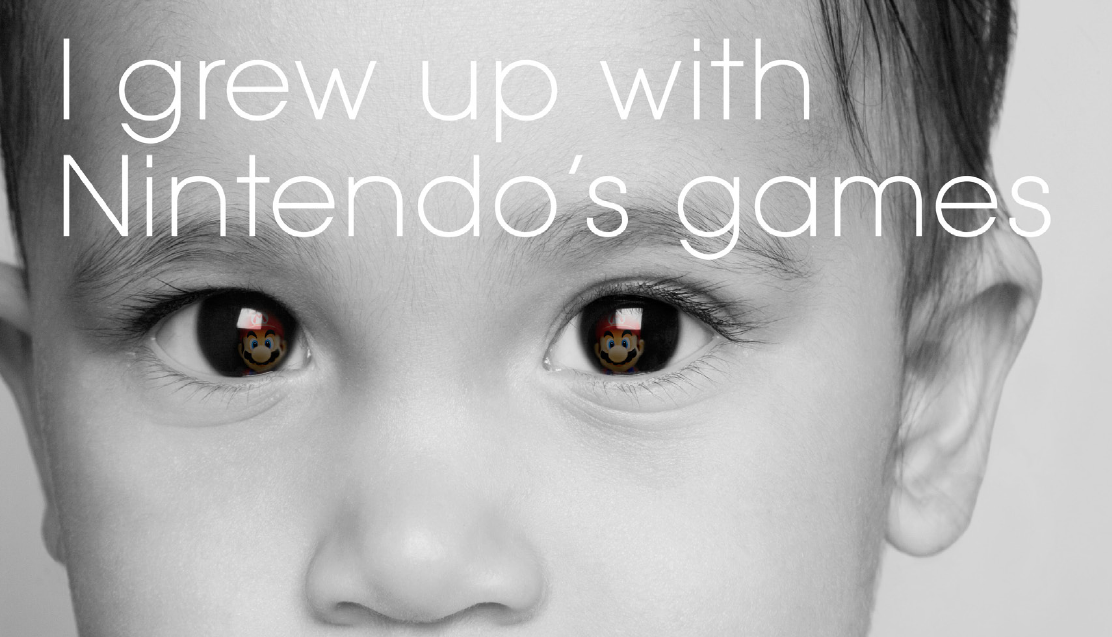Nintendo’s Wii U Woes
Nintendo's Latest Financial Report Begs the Question, "What Went Wrong?"

These days, you would be hard pressed to find gamers – or anyone over 18 for that matter – who don’t fondly recall long nights playing Nintendo classics like "Mario Kart 64," "Super Mario World," "Metroid," or any other time-honored titles. It is exactly this nostalgia that Nintendo recently preyed on in their newest financial report.
Before addressing Nintendo’s abysmal financial quarter, Miyamoto pleads with readers to remember the good times. The document opens with stills from past Nintendo – "F-Zero," "Donkey Kong," and "Pokémon" - and progresses through to the current day with Wii peripherals 3DS and "Miiverse." The chronology ends with a particularly moving slide saying that Nintendo’s games grew alongside their fans. Sappiness over, the 2013 Annual Report then continues with presenting the dire situation the once-dominant console manufacturer is in with only 160,000 Wii U units shipping globally in the last quarter. Gamers, industry professionals, and likely Shigeru Miyamoto himself must be asking, “What went wrong?”

On paper, Nintendo had everything going for them. Releasing a next-gen console almost a year before their major competitors, combined with a trusted brand and a tradition of revolutionary gameplay is surely a recipe for success. For a company that has been known for pushing the boundaries, it is a wonder why the Wii U has come to represent outdated tenements of gaming. Nintendo’s recent woes are a result of these antiquated ideals that have proven strong in the past but no longer fly in the current industry.
While many point to the hardware as Wii U’s biggest downfall, outdated specs do not necessarily sink a console, especially for Nintendo. Back in 2007, lead producer for the "FIFA" series at the time lauded the Wii for its poor technical performance, equating it to having the power of the original Xbox. The Wii then became one of the best-selling consoles of all time. Nintendo’s charm has always been in great gameplay; the Wii U’s specs may be a sticking point following the release of competing consoles this Nov., but it certainly hasn’t excused its current failures.
So if it’s not the hardware, then is the software to blame? While Nintendo’s releases in recent years have been consistently well-received, for the most part they have made little effort to really push the envelope. Many of the first party hits have been series continuations with no real pushes for new IPs. Further, the franchises traditionally known for pushing consoles - "Mario Kart," "Super Mario," and "Zelda" - will either be absent this year or released late 2014. With little support coming from first party development, more pressure is placed on third-party releases, an area where the Wii U has undoubtedly failed. Promotion for those third-party releases have been virtually non-existent, especially when compared to first-party games. Lead developer for “Zombie U” – a flagship third party launch title - has described sales as not even close to being profitable, subsequently dashing hopes for a followup. In addition, the poor console sales have pushed Ubisoft’s much-anticipated “Rayman Legends” from a Wii U exclusive to releases on Xbox and PS3.
The problems with software only explain so much of the Wii U tanking. This article hasn’t even touched on the price ($349 MSRP? Really, guys?), online accounts being tied to separate consoles, and the poorly chosen next-gen console name. I like to consider myself a pretty informed gamer, but hearing the name of the Wii U didn’t really grab my attention at first glance. I had written it off as a new peripheral for the Wii. There simply wasn’t enough to distinguish it enough from the previous generation.
If E3 2013 taught us anything, it was that second-screen technologies are going to increasingly become part of the console gaming experience to come. Ironically, the Wii U’s largest selling point, its most characteristic feature as a next-gen console will likely go unnoticed. Major upcoming third parties like the Division and Watch Dogs will forgo the Wii U’s built-in tablet in favor of Xbox’s Smartglass or Playstation Vita’s second-screen capabilities. Nintendo was right to appeal to gamers’ nostalgia in their dire annual report; it reminds us of all the good times we had together. Conversely, it is precisely this affinity for a beloved company that makes the Wii U hurt that much more. We can now only hope that Nintendo moves the conversation from “What went wrong?” to “Okay we messed up, but where can we go from here?”
Source: Nintendo's Annual Report 2013